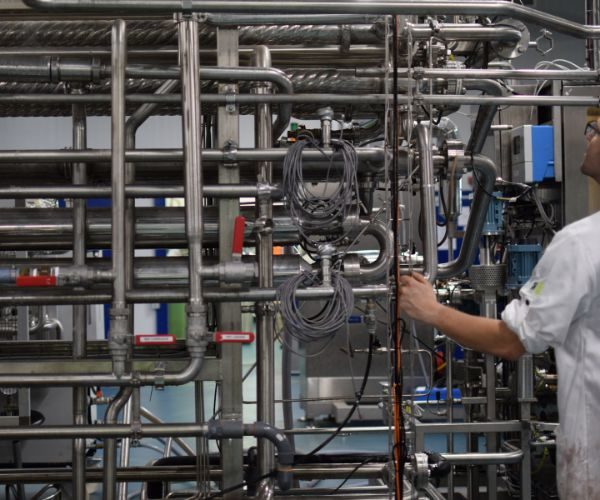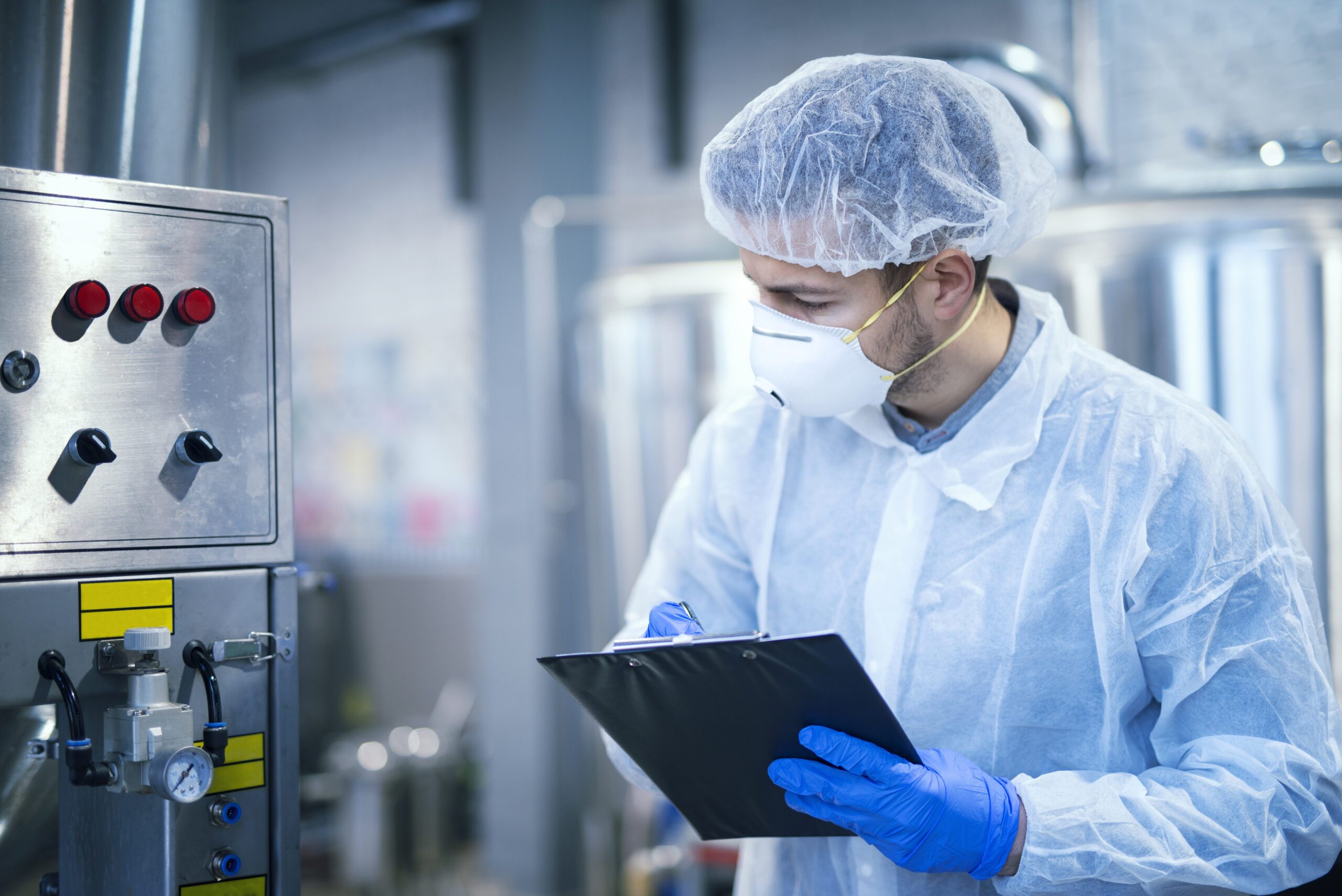Regulations, food safety
How can you ensure the hygienic design of your equipment and meet the new requirements of quality standards?
05
June

Published on: 05/06/2024
In the new versions of the BRCGS Food, IFS Food and FSSC 22000 quality standards, the requirements concerning equipment have evolved: it is no longer sufficient to ensure that equipment is well maintained and clean, but that it is properly designed, right from the outset for all new equipment. To meet these requirements, it is necessary to identify the criteria for hygienic equipment design, and to carry out an equipment-specific risk assessment.
What are the new requirements of quality standards for hygienic equipment design?
For example, the BRCGS Food version 9 requires :
- 4.6.1 "[...] detail the site requirements for this equipment."
- 4.6.2: "Equipment design and construction must be based on risk assessment [...]".
- 4.6.3: "The design and layout of equipment must ensure efficient cleaning and maintenance."
In his new requirement 2.5.15, version 6 of FSSC 22000 requires documented purchasing specifications for equipment, taking into account, among other things, their hygienic design, and a risk-based process for managing equipment changes.
The IFS version 8For its part, the French Food Safety Association talks about validating compliance with food safety, quality, legality, product and customer authenticity requirements for all new equipment.
What do we mean by "hygienic equipment design"?
Hygienic design is the ability of equipment to be easily cleaned. This is an essential aspect for companies manufacturing food products, as well as pharmaceuticals, chemicals and cosmetics.
Here are some examples of key design criteria to consider:
- Surface finish: Parts of equipment in contact with food (e.g. conveyors, pipes, pumps, valves, etc.) must comply with roughness criteria to limit bacterial adherence and facilitate cleaning.
- Welding : Welds must be of sufficient quality to avoid becoming a product retention and corrosion zone.
- Drainability : equipment (pumps, valves, etc.) must be mounted on the machine in such a way as not to retain any product or cleaning fluid.
Quality standards are based on the recommendations of theEHEDG (European Hygienic Enginnering and Design Group). The European Hygienic Engineering and Design Group (EHEDG) publishes guides to help you meet the main criteria for the hygienic design of equipment: whether for open or closed circuits, for liquid or powder products.
What does the CTCPA offer to support the food industry?
- To meet quality standards for hygienic equipment design
The CTCPA offers you the " Hygienic design of food processing equipment: how to meet the requirements of quality standards "This one-day distance learning course for inter-companies, or face-to-face for intra-companies, will help you identify the key criteria for hygienic design of equipment, and conduct your risk assessment based on these criteria.
- To provide in-depth training in the hygienic design of equipment and production lines for the relevant teams in the company (Quality, R&D, Purchasing, New Works, Production, Maintenance, Cleaning, etc.).
The CTCPA offers the "Chygienic design of equipment and production lines"This two-day course will enable you to identify critical design points, master the regulatory and commercial requirements that apply to your equipment, carry out line diagnostics, and understand the interactions between hygienic design, cleaning and bacterial growth.
This training course focuses on the criteria for hygienic design in line with current standards, and the benefits that result from their application: reduced microbial contamination, shorter cleaning times, water and energy savings, equipment durability, enhanced product quality. The training is tailored to your teams, your equipment and your cleaning and disinfection methods. Exercises are carried out in real-life situations on your production lines and/or on plans for existing or future equipment.
Through its participation in the Actia Chlean RMT network, its research projects and its training courses, the CTCPA keeps abreast of new cleaning-disinfection techniques and solutions. Our team of specialists in cleaning and hygienic design, members of the EHEDG Board of Directors, will visit your company to help you create a new line or optimize an existing one.
Contact contact@ctcpa.org or contact.formatio@ctcpa.org
_
Article written by Christine DECANIS - Food safety management and training project manager & Dr. Nicolas BELAUBRE - Technology project manager







